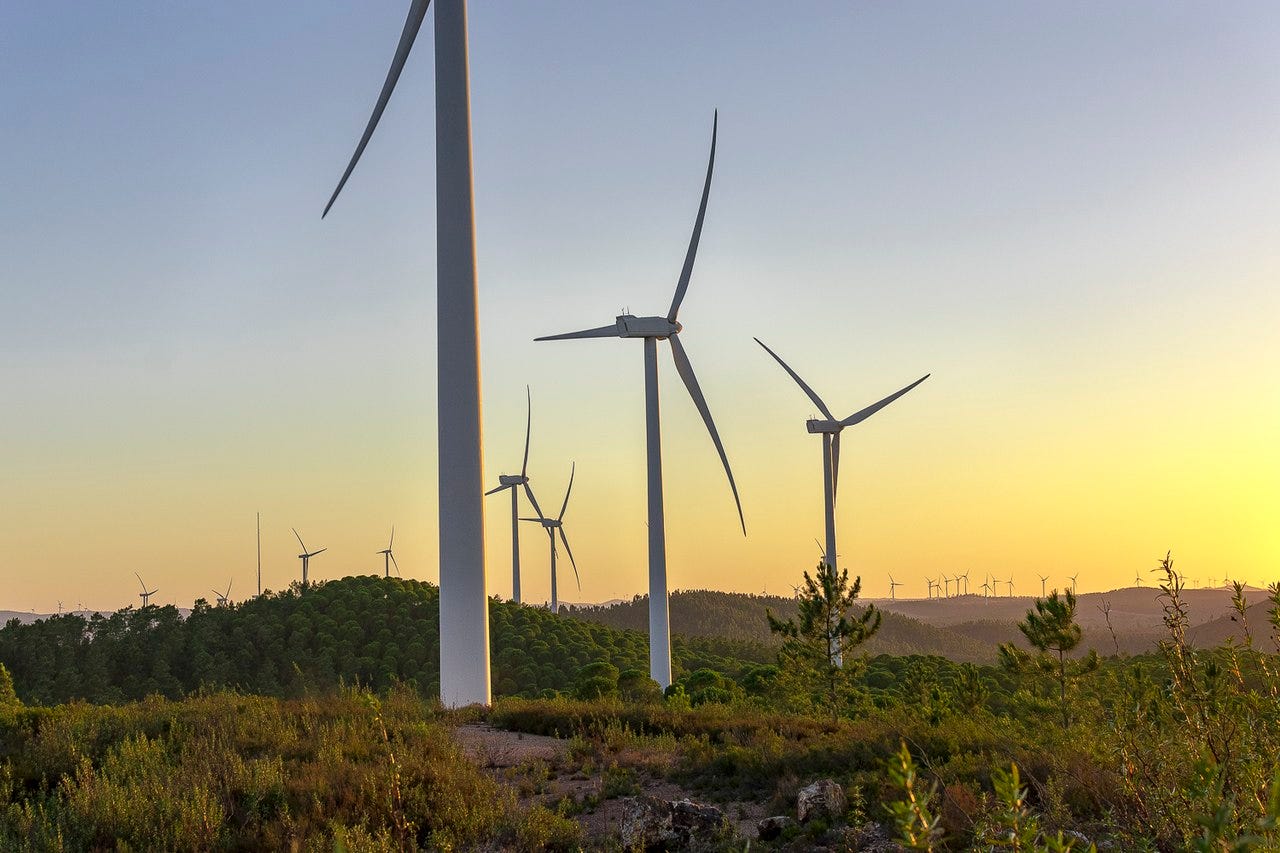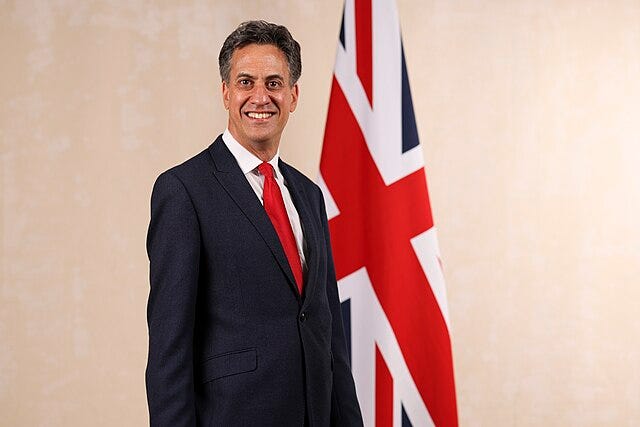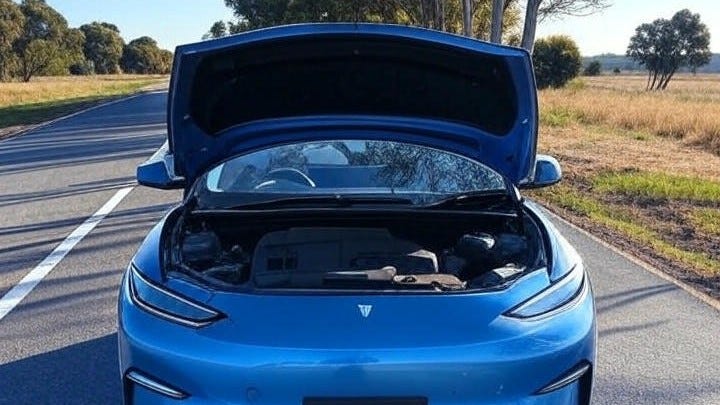News Round-Up: UK Government Admits Net Zero Is Expensive, Australian Government Halts Recommending Covid Vaccines For Children, and Renewables Behind Spain’s April Blackout
Every week, the editorial team of Freedom Research compiles a round-up of news that caught our eye, or what felt like under-reported aspects of news deserving more attention.
Over the past week, the following topics attracted our attention:
Spain government report: renewables triggered April blackout.
UK government admits Net Zero more expensive than fossil fuels.
Australian government halts recommending Covid vaccines to children.
US government urges states to halt funding for puberty blockers for children.
EVs the most likely type of car to break down.
Government report: renewables triggered Spain’s blackout
Spain’s disastrous national blackout was triggered by solar farms switching off in response to plummeting power prices, an official investigation has found, The Telegraph writes.
A government report into Europe’s biggest power cut found that Spain’s solar farms were generating so much power on April 28, a particularly sunny day, that prices became “negative” – meaning there were no profits to be made in operating them.
Plunging prices triggered a mass switch-off, which sent voltage and frequency fluctuations cascading across the national grids of both Spain and Portugal. Back-up systems meant to guard against such fluctuations were not in effect.

This caused blackouts that left more than 60 million people across the Iberian peninsula without power, the Spanish government report concluded.
The power cut caused massive gridlock in cities and left thousands stranded on trains and in elevators across the Iberian peninsula. Several deaths were also linked to the incident.
Experts said in the immediate aftermath of the power cut that a reliance on Net Zero energy had left Spain and Portugal vulnerable to blackouts because of the way renewable power is generated. However, Spain’s Left-wing government has repeatedly insisted that renewables were not to blame.
UK government admits Net Zero more expensive than fossil fuels
The UK government has quietly admitted that using low-carbon technologies essential to the rapid drive towards Net Zero are more expensive than using fossil fuels as an energy source, City AM reports.
The government is preparing to unveil the UK’s industrial strategy next week. The blueprint for growing the economy will outline plans to lower energy costs. The Department for Energy Security and Net Zero saw its budget increase by 16 per cent at the Spending Review, with more funding set to go towards nuclear power and wind and solar in a bid to remove nearly all fossil fuels from the UK electricity production by 2030.
But officials working under the energy secretary Ed Miliband told the Committee of Public Accounts, which scrutinises expenditure by different government bodies, that higher electricity prices made “low carbon technologies” more expensive despite the government linking the development of green technology to more affordable energy bills.

The admission came in the minutes for a PAC report, which is publicly available online, detailing the government’s responses to recommendations made on energy policy.
The statement explains that high residential electricity prices in the UK do not reflect the “cheaper wholesale price of clean energy” and can actually stem from the costs of some of the Net Zero policies. “Low carbon technologies can be more expensive to run than fossil-fuel powered alternatives,” the government’s response read. “The price disparity between electricity and gas needs to be addressed to make it more attractive for consumers to install clean technologies like heat pumps.”
It follows a similar admission earlier this year that Net Zero policies would push up energy bills in the “short to medium term” according to a page on the government’s website, as first reported in The Telegraph.
US government urges states to halt funding for puberty blockers for children
The US government is pressuring states to halt funding for puberty blockers for children and follow the UK’s Cass Review, The Telegraph reports.
The Center for Medicare and Medicaid Services (CMS), which provides health coverage to more than 160 million Americans, urged directors to adopt the findings of the report, which concluded that children who think they are transgender should not be rushed into treatment they may later regret. In a letter sent to medical directors, the agency said that Britain has “diverged” from the United States and that the National Health Service’s new approach is more effective. Under Donald Trump, the US has quickly moved to ban all “destructive and life-altering procedures” associated with transitioning children. Some 27 states have enacted laws that ban or restrict gender‑affirming care for minors. But puberty blockers are still available in many others. “Several developed countries have recently diverged from the US in the way they treat gender dysphoria in children,” the letter reads. “The United Kingdom, Sweden, and Finland have recently issued restrictions on medical interventions for children, including the use of puberty blockers and hormone treatments.” In particular, the Cass Review, an independent review of the evidence in the United Kingdom, noted that despite considerable research in the field of gender dysphoria in children, ‘systematic evidence reviews demonstrated the poor quality of the published studies, meaning there is not a reliable evidence base upon which to make clinical decisions, or for children and their families to make informed choices.’

Led by Dr Hilary Cass, the review was prompted by concerns about the high rate of young people being referred to the Tavistock gender clinic in London, which referred children as young as 10 for treatment with puberty blockers.
Australian government halts recommending Covid vaccines to children
Australia has quietly removed its recommendation of Covid vaccines for infants, children and adolescents younger than 18. “Covid-19 vaccine is not recommended for healthy infants, children or adolescents who do not have medical conditions that increase their risk of severe illness,” the recommendation last updated on June 3 reads on Australian government Department of Health and Aged Care webpage Australian Immunisation Handbook. “This is because the risk of severe illness was extremely low in this cohort over the course of the pandemic, and benefits of vaccination are not considered to outweigh the potential harms,” the statement continues.
The interesting part is that it was known already during the Covid crisis that there was practially no risk to younger population, but back then wide vaccine mandates were nonetheless introduced.
Australian researcher Dr. Ralph Lataster comments on this: “Not only is the Australian government no longer recommending the vaccines to young and healthy children, they are just about admitting that for this group the risks outweigh the benefits. Technically the wording stops just short of that, but it is literally a single adverse event (very likely in the near future due to the known and unknown unknowns) that could lead to outright declaring that the risks of Covid-19 vaccines do indeed outweigh the benefits. Somehow, this highly significant revelation didn’t receive the same sort of attention with the mainstream media as when the Australian TGA declared that Covid-19 vaccine “benefits outweigh the risks”, even as evidence against the vaccines continued to mount.”
EVs the most likely type of car to break down
Electric vehicles (EVs) are the most likely type of car to break down, a survey of tens of thousands of motorists has found, The Telegraph reports.
A poll of just under 30,000 car owners found that 10.9 per cent of their vehicles had broken down in the past two years. Of those who gave their car’s fuel type, about one in six (16.8 per cent) said the car that broke down was an EV, found the latest Reliability Survey of What Car? magazine.
This breakdown rate was higher than given for petrol, diesel or hybrid cars when those owners responded to the survey. Other data gathered by the magazine revealed that owners of diesel-engined cars are most likely to report a fault, with 31 per cent of its readers doing so last year, although that figure has declined from 50 per cent in 2022.
The findings come after Jakob Pfaudler, the AA’s chief executive, warned of a “common misconception that electric vehicles break down less frequently than petrol and diesel vehicles”.
Mr Pfaudler said in April: “Currently, at least, that is not the case. The breakdown rate is, in fact, slightly higher for electric vehicles than for internal combustion-engine vehicles.”
The findings What Car? made about the reliability of vehicles were based on approximately 17,300 drivers who gave their vehicle’s fuel type, out of the 30,000 surveyed.



